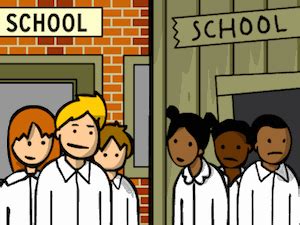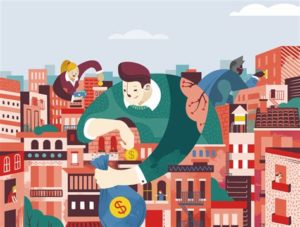Marty Levine
December 1, 2021

The past few months I have, more than ever, struggled with a sense of failure and despair. It has been reflected in my writing, so much so that my editor has sighed with each new piece hoping I would be giving her something less depressing. But this is how I view our country right now.
The problems of racism and economic distress that were before us when I was in high school and college remain unresolved. And now, our recognition that we have tampered with the natural environment so harshly that we are risking ruination, indicates that we have even more to contend with. Our political leadership is in even more disarray than it was in the depths of the Nixon years. “Liberals,” “Progressives” and Democrats remain unwilling to look for solutions together, valuing political safety over effectiveness. Conservatives and Republicans have given up any pretense that they see or care about our future or what their constituents might want.
The last year has shown us that our nation is split between those who want to keep things as they were, protecting their privilege or fearing that they will be left behind and left out, and those seeing critical problems needing to be resolved and inequities redressed is wide and growing wider. It seems that, despite polls telling us that new policy directions are popular, much of the nation looks at change from a NIMBY (Not in My Back Yard) perspective, wanting change for the better IF they are not asked to change their lives at all.
Two stories from yesterday’s New York Times seemed to capture how much this inertia is stymying progress.
Last June University of California Berkeley’s Othering & Belonging Institute published “The Roots of Structural Racism: Twenty-First Century Racial Residential Segregation in the United States,” finding that between 1990 and 2019, 169 out of the 209 metropolitan regions in the United States with populations above 200,000 people have increased in their levels of segregation, which correlated with poorer life outcomes, particularly for people of color, in terms of health, educational attainment, economic mobility, and much more.”

It should come as no surprise, then that almost 70 years after the US Supreme Court ruled that segregated schools were unconstitutional and must be integrated, we are still trying to make this more than a theoretical exercise in constitutional law.
The Times took a look at Minneapolis’ current struggles to make Brown vs Board of Education a reality. “Minneapolis, among the most segregated school districts in the country, with one of the widest racial academic gaps, is in the midst of a sweeping plan to overhaul and integrate its schools. And unlike previous desegregation efforts, which typically required children of color to travel to white schools, Minneapolis officials are asking white families to help do the integrating — a newer approach being embraced by a small group of urban districts across the country.”
But asking White families to be the ones to make the needed changes again proves to be a big ask, perhaps a too big an ask in our American reality. Eric Moore, senior officer for accountability, research, and equity for Minneapolis Public Schools was clear in comments reported by the Times how the plan is being received in another “progressive” city, “Everyone wants equity as long as it doesn’t inconvenience them…This plan is saying, everyone is going to be equally inconvenienced because we need to collectively address the underachievement of our students of color…”
The reasons not to enroll your White child in a predominantly Black school are easy to tick off. “The quality of the school is not as good,” “my child will feel uncomfortable as a minority,” “there is too much crime in the area” or “I don’t want to risk her future in an experiment.” Ignored is the reality that with power and money still a “White Thing” keeping schools segregated keeps predominantly minority schools underfunded and under-resourced.
And our current marketplace-driven educational philosophy allows parents to act on their fear and bias. “ One big challenge for the district was that families could still choose charter or suburban schools. In one part of the new zone, which includes some of the more affluent neighborhoods, just 15 percent of new families assigned to North decided to attend, according to district figures.”
The public education challenge we have failed to resolve is built on a foundation of residential separateness that remains the foundation to privilege and serves as a barrier to needed systemic changes. The impact of struggling school systems remains reflected in lower earnings, difficulty in competing for new jobs, and difficulty in affording stable, quality housing. At the same time, those with wealth and privilege are endlessly in search of their next, better place to live. For them, urban renewal means the replacement of those who came before them. It means gentrification. Asking for the homes and communities to be protected for others is again an ask too far.

The NY Times focused on Austin, Texas to illustrate how affordable housing remains something that we may support in principle but not when it can limit the personal options of White wealthy households.
“Over the last few years, in one of the fastest-growing cities in America, change has come at a feverish pace to the capital of Texas, with churches demolished, mobile home parks razed and neighborhood haunts replaced with trendy restaurants and luxury apartment complexes…surging prices have created a brewing housing crisis that is reshaping the city of nearly 1 million people, and pushing mostly low-income Black and Latino residents…away from cultural centers, transportation hubs, grocery stores and other amenities that come with urban living…”
Susana Almanza, a longtime activist described the impact of Austin’s growth, “This has become the tale of two Austins…The rich keep building in our neighborhoods and the poor keep getting displaced. It doesn’t end.”
Those being asked to pay the price of the status quo are those who have already been punished by it. They have more than paid their fair share. Yet, those of us who can afford to do more seem stuck in our own wealth and comfort. Stuck so hard that no matter how we answer survey questions about integration, affordable housing, and other programs of social change, we really don’t want those solutions to change our lives. We refuse to pay more taxes. We refuse to risk any discomfort or dislocation in our way of life. We are ready to be lulled by the sweet sounds of politicians telling you that everyone is responsible for their own life and success; that failure is personal and not societal.
As long as we are deluded by this false sense of comfort, we are doomed to continue as we have, spiraling down from one crisis to another. And we will be leaving those who have been historically marginalized and ignored falling further and further behind. At some point, they will no longer remain quiet and trusting and we will all suffer from the inevitable fallout.

Thanks for sharing. I read many of your blog posts, cool, your blog is very good.